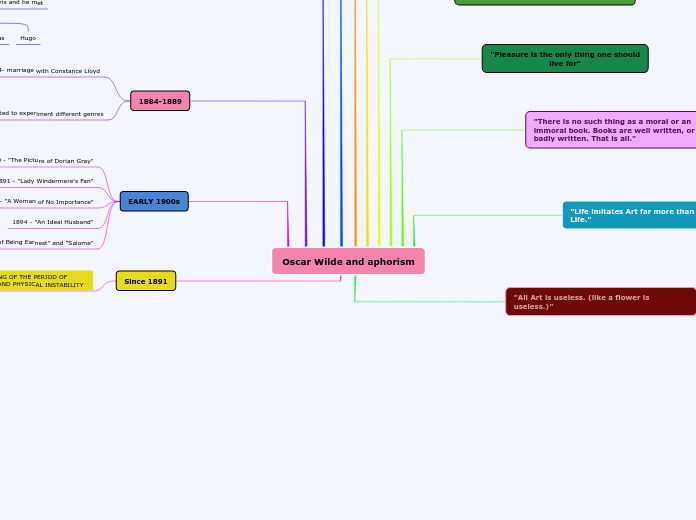por Sara Tonin hace 4 años
826
Oscar Wilde and aphorism
Born in Dublin in 1854, Oscar Wilde was a renowned playwright and author known for his sharp wit and memorable aphorisms. He attended Portora Royal School in Enniskillen and graduated in 1878.

por Sara Tonin hace 4 años
826

Ver más
In linguistics, syntax is the set of rules, principles, and processes that govern the structure of sentences in a given language, usually including word order.
1905 - "De Profundis" and "The Ballad of Reading Gaol"
"The Decay Of Lying" (1889)
"The Happy Prince and other Tales" (1888)
A complex sentence is a sentence that contains an independent clause and one or more dependent clauses.
An independent clause can stand alone as a sentence, but a dependent clause even though it has a subject and a verb cannot stand alone.
An adverbial clause is a group of two or more words that function as an adverb in a sentence.
An appositive clause follows another noun or noun phrase in apposition to it; that is, it provides information that further identifies or defines it.